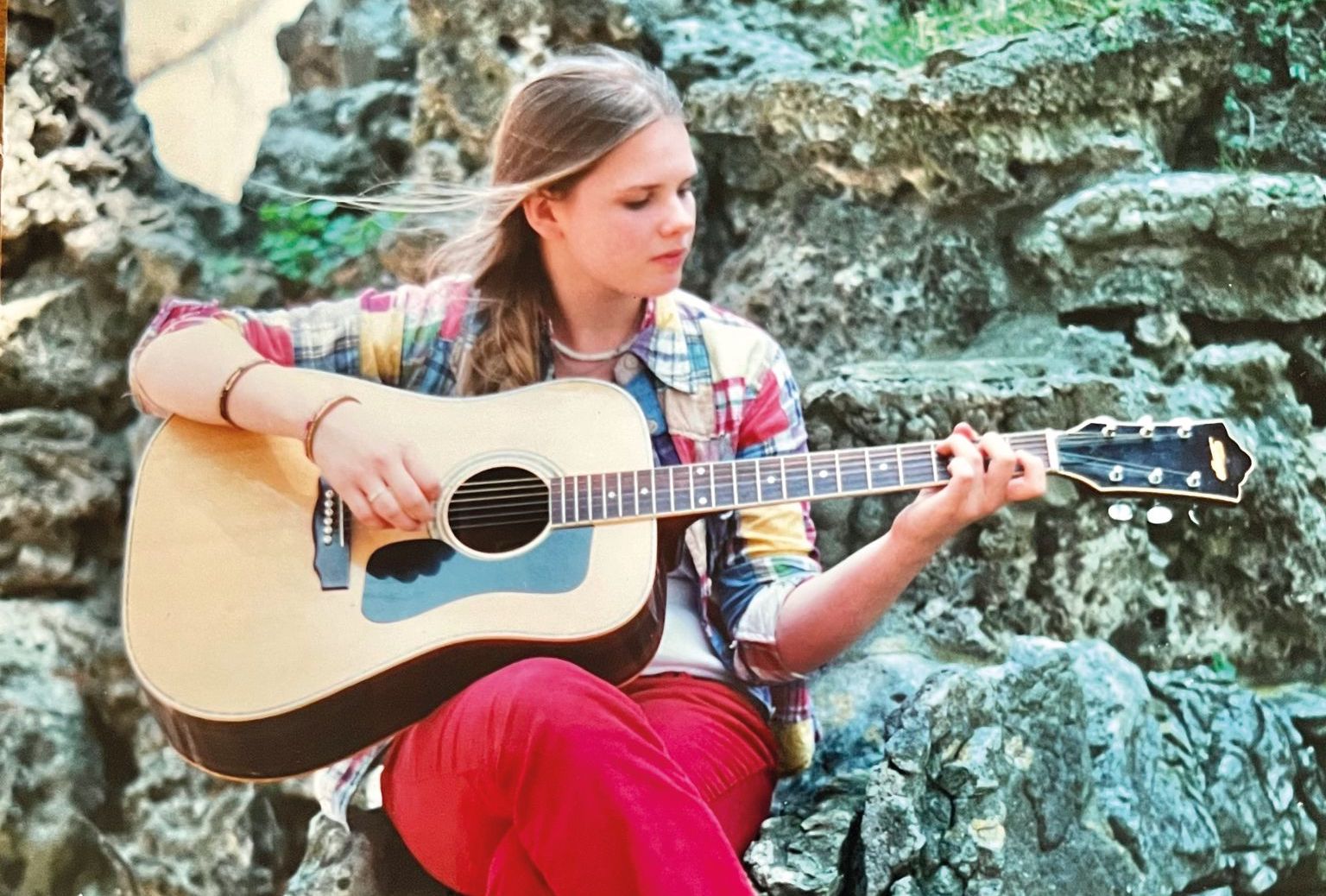At 16, Cassandra Jenkins was already touring the U.S. folk circuit
The songwriter behind one of 2021's best albums reflects on that pivotal teenage year

I went to an all-girls school, and we would go on these ‘orientation retreats’ every year. This photo is from one of those, in upstate New York, where you’d go and bond and talk about yourselves – your values, the things you appreciate about one another, to move beyond some of the social dynamics of the classroom into a more open space. There was a lot of apologising to each other. I remember we all ate in these dining halls and they were like, “For the vegetarians, we have tuna fish salad!” I was vegetarian, and it was like, “Guys, it’s the year 2000. We can figure this out.”
That year there was an influx of new students, making a class of 30 a class of 45. I remember seeing this one girl and I just thought she was so cool. She had really long hair and looked like someone I really wanted to be friends with. She came up to me after math class and was like, “Hey, I am starting a band. Do you play the bass guitar?” And I didn’t, but I was like, “Yeah, I totally do now.” And that’s how I started playing the bass – I just wanted to be friends with this girl, and we stayed friends for many years, played in many bands together, up until pretty recently.
I was pretty deeply immersed in music then, but it was through meeting that friend that I got interested in newer stuff – we’d listen to Smashing Pumpkins, Nirvana and Metallica together, whereas before that I was exclusively listening to stuff like Ella Fitzgerald and The Beatles and James Taylor, as well as whatever my parents were listening to. I hadn’t gotten into newer music on my own. But she was like, “Let’s cover this Pearl Jam song and this Hole song,” and I was like, “Oh, okay.”
I grew up singing in my family band, playing a lot of the Great American Songbook. We would travel every summer for most of my childhood, to go play these very obscure folk festivals along the eastern coastline of the US. It was a pretty small circuit, but that was what we did – we didn’t go on family vacations, we went on family tours, and it meant the five of us packing into a vehicle of some kind with all of our instruments and all of our bags. It was usually pretty chaotic. But that was what we did: from the age of 12 onwards, we would do this circuit every summer.
My parents still do that every year. I haven’t gone since I became a touring musician, which I think is sort of the ideal thing to come out of that situation. In a lot of ways, I think they expected the kids of the festival to carry on the tradition, but instead I took it and ran with it. I’m still friends with a lot of the kids that I met there. Some of them are still doing incredible things: I met Sam Amidon there when I was maybe 13, and he’s one of my favourite musicians and one of those people who grew up in a similar way, where his family was very immersed in the traditional American music scene.
There’s a folk tradition of being a storyteller, and I never considered myself to be a good storyteller, but recently I realised that that’s a really big part of what I’m doing as a songwriter now. I’m on stage telling stories, and I fall back into some of the patterns that I observed when I was a kid – some of the formal stage banter style. So I’m finding my way with that, and trying to inhabit that in a way that feels natural to me and to the people that I’m seeing at my shows now.
For a long time I wouldn’t have said that I was trying to get to be a touring musician full-time, but the other day I heard one of the Nirvana songs my friend and I used to cover, playing in this little cafe in the countryside in France. It made me realise that, “Wow, I’ve been pointing myself towards this for a long time.” And now I’m 37 and I am that person, and there’s not really any turning back.
If I could see my 16-year-old self now, I’d just say that you have a lot to offer, even and perhaps especially when you’re doubting yourself. As a younger woman I tried to mould myself to a world that’s trying to quieten a lot of voices out there, because the power that a lot of oppressed people, including women, have is threatening. But as soon as you start to feel like your voice is being smothered, that’s really when you need to speak up.
As told to Luke Cartledge